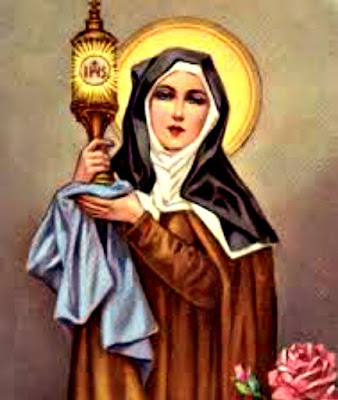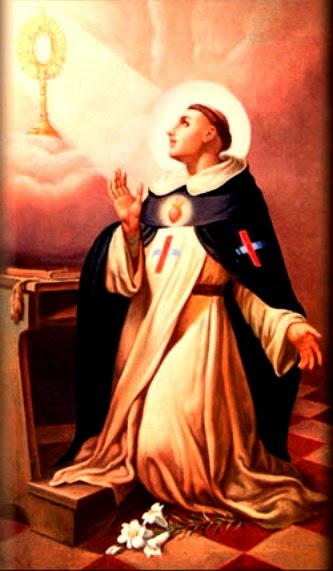St. Gregory of Nyssa
 Gregory was born of a deeply religious family and was raised piously. His mother Emmelia was a martyr's daughter; two of his brothers, Basil of Cæsarea and Peter of Sebaste, became bishops like himself; his oldest sister, Macrina, is a saint. The younger brother of St. Basil the Great was educated by Basil and Macrina, which suggests that their parents died when he was young. He studied rhetoric, became a professor, and was elected Bishop of Nyssa in 372. He was falsely accused of embezzling church funds and was arrested by the governor of Pontus. He escaped from captivity, but did not return to his See until 378. Shortly after this, Basil died, soon followed by Macrina.
Gregory was born of a deeply religious family and was raised piously. His mother Emmelia was a martyr's daughter; two of his brothers, Basil of Cæsarea and Peter of Sebaste, became bishops like himself; his oldest sister, Macrina, is a saint. The younger brother of St. Basil the Great was educated by Basil and Macrina, which suggests that their parents died when he was young. He studied rhetoric, became a professor, and was elected Bishop of Nyssa in 372. He was falsely accused of embezzling church funds and was arrested by the governor of Pontus. He escaped from captivity, but did not return to his See until 378. Shortly after this, Basil died, soon followed by Macrina.
His intellectual gifts, as evidenced in his numerous writings against Arianism and in support of orthodoxy, caused him to become known as the "common mainstay of the Church." He was sent on missions to counter heresy in Palestine and Arabia and he was the chief proponent of the trinitarian doctrine at the First Council of Constantinople in 381, which safeguarded the true humanity as well as the divinity of Christ.
Gregory participated in the second ecumenical Council at Constantinople as a theologian. He continued to fight Arianism and reaffirmed the decrees of the Council of Nicaea. The council called him, "Father of the Fathers" because he was widely venerated as the great pillar of orthodoxy and the great opponent of Arianism.
Gregory wrote many reflections and commentaries on Scripture, most notably his Life of Moses and homilies on the Lord's Prayer, the Song of Songs, and the Beatitudes. His most important contribution was in the area of spirituality. While his brother gave eastern monasticism its structure and organization, Gregory provided its heart and mystical vision. For this reason he came to be know as "Father of Mysticism."
Gregory of Nyssa died around the year 395 AD and is revered as one of the greatest of the Eastern Church Fathers. He, his brother Basil and their friend St. Gregory of Nazianzen, are known as the Cappadocian Fathers, from the region in modern Turkey from which they came.
Quote:
"After the resurrection, when our bodies will be reunited to our souls, they will be incorruptible; and the carnal passions which disturb us now will not be present in those bodies; we shall enjoy a peaceful equilibrium in which the prudence of the flesh will not make war upon the soul; and there will no longer be that internal warfare wherein sinful passions fight against the law of the mind, conquering the soul and taking it captive by sin. Our nature then will be purified of all these tendencies, and one spirit will be in both, I mean in the flesh and in the spirit, and every corporeal affection will be banished from our nature."
~ St. Gregory of Nyssa




thanks for sharing this. I will read your blog whenever I can.
ReplyDeleteGod bless you!
Thanks for visiting and for your comment. I love getting comments from my readers.
ReplyDeleteGod bless you!